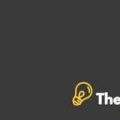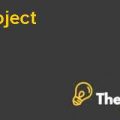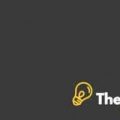
Introduction
The paper attempts to describe the background of the case along with the Rhine Garden Holding Company’s introduction. The paper also attempts to provide the key issues faced by the organization which need to be addressed in order to gain competitive advantage. Furthermore, the paper provides a detailed internal and external analysis of the company through the application of SWOT analysis and Porter’s five forces model. On the basis of analysis and the key issues identified, the paper provides recommendations to the company.
Background
The case highlights the brand positioning paradox for Rhine Garden Holding Company for its two western restaurant chain which include Rhine Garden and Café Lagoon. The case provides the prospects of the company in expanding into different districts of Hong Kong in order to acquire profitability and deeper market penetration for its two brands. The case describes the background of the restaurant business in Hong Kong while relating to the understanding of recent trends for fast food and full-service restaurant business in the region. Furthermore, the case also describes separately the two restaurant chain brands along with their food menu, locations, and décor. Lastly, the case describes the organizational setup for the two restaurants and the future prospects of the company’s managing director, Tommy Fung.
Rhine Garden Holding Company was founded in the year 1992 by Tommy Fung and his two friends as a Western full-service restaurant. The profitability of the company improved since its inception and it reported sales of HK$100 million in the year 2005. The company operates two separate western restaurant chains which include Rhine Garden and Café Lagoon. The first Rhine Garden restaurant initiated in 1992, whereas, the first Café Lagoon restaurant was operated in the year 2001. Currently, the company operates with 8 restaurant chains for Rhine Garden, while 4 restaurant chains in the case of Café Lagoon with a total of 485 employees working for the company.
Key Issues
Since Tommy Fung, the managing Director of Rhine Garden Holdings Limited has decided to expand his restaurant business in different districts of Hong Kong, he wants develop a market positioning of its brand in the mind of a consumer. The company wants to increase market penetration in a country before it decides on expansion in order to develop a clear understanding of the brand message to portray to consumers. Moreover, the company also wants to determine how the operational strategies of the company could be changed in a way that it best suits the positioning of the restaurant.
Rhine Gardens also needs to make decision regarding the advertisement of its restaurant and how the managing director should be pursuing the advertisement strategy. Since expansion of restaurants in different districts would increase the need for advertisement, therefore, the company needs to spread the message of its brand to its consumers. Moreover, Fung faces another challenge of making his local brand famous in the eyes of the people of Hong Kong by understanding the meaning of the two restaurant brands of Rhine Gardens and Café Lagoon.
Analysis
SWOT Analysis
Strengths
Since Rhine Garden is Western full-service restaurant, therefore, it offers western food according to the likes and local taste of the people of Hong Kong. Although it provides a superior food offering in the country, however, the company has set reasonable pricing to attract consumer traffic. Moreover, the restaurant offers a wide variety of food which constitutes of many dishes around the world as per the likings of its customers which includes from Chinese fried rice to Italian spaghetti, while US fish and Chips to Indian curries, the company possesses diversified food items. As discussed in the case, customers’ trends are constantly changing in the food industry of Hong Kong; therefore, the company anticipates those needs by revising their menus according to the latest food trends. The company had a loyal customer base for Café Lagoon which is considered as a good signs for sustainable profits.
Weaknesses
The ideology and the strategic thinking of Executive Chef of the two restaurants are dissimilar to the features of Café Lagoon. Café Lagoon provides its customers with an experience of high class western food with superior quality; however, the ideology of the executive chef is based on providing a mid-priced western restaurant. Therefore, the clash in the ideologies prompted the performance of Café Lagoon to decline. The company failed to meet its sales target for the particular restaurant chain because of the clash in position of the brand. Brand positioning of Café Lagoon was weak as the company sought to add the menu from its other restaurant chain into Café Lagoon to provide the restaurant’s stability in its performance. Moreover, less management attention is provided to the particular restaurant which has risked its existence. The décor of the restaurant was not uniform which did not attract consumer attention............................
This is just a sample partial case solution. Please place the order on the website to order your own originally done case solution.













